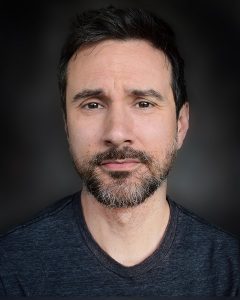
Today we’d like to introduce you to Josh Robert Thompson.
Hi Josh Robert, can you start by introducing yourself? We’d love to learn more about how you got to where you are today?
Well, I think all of this started for me at a very young age. I grew up in Cleveland in the early 80s and didn’t have any siblings. And I wasn’t really interested in typical childhood things. Wasn’t very good at sports. Only had a handful of friends. The neighborhood I grew up in was particularly rough, as was school, so the outside world was a pretty scary place to me. I was what they called a Latchkey Kid, which basically meant that I was home by myself most of the time. And it was in these times that I would draw or write stories or play with puppets or listen to old comedy albums. It was probably around that time that I started doing a lot of theatre at The Cleveland Playhouse. And mimicking voices. I had an old Fisher-Price tape recorder that I carried around with me everywhere, recording sounds off the TV or interviewing kids on the street or making my own radio plays and voicing all of the characters. This idea that you could capture sound in a little plastic box and play it back later was some of kind of amazing magic trick. It was a special time in my young life where I could escape into my own imagination and create this kind of weird, magical world for myself. And that’s something that hasn’t changed much over time. I think it’s so critical for artists to find that kind of space for themselves, whether it’s your actual physical workspace or just finding some quiet time to be creative, or think, or read, or even do nothing at all.
As the years went on, the cassette tape gave way to the VHS camcorder. And I started making my own movies and comedy sketches with friends. My basement became a kind of working studio, complete with sets made from refrigerator boxes, old tube TVs for monitors and a “high tech” VCR-to-VCR editing “suite.” Look, I don’t want to sound like a dinosaur here, but this was way before the internet or social media. When I created something, it was just for me. It wasn’t about likes or going viral; we had no concept of what that even meant. It was purely about creating for the sake of creating. Sometimes I lose sight of that. I think we all do at some point or another. But it’s important to look back at why these kinds of creative endeavors excited us in the first place—because we simply enjoy doing it. In everything I do, I suppose that I’m always trying to get back to that state of mind. Everything else is just noise.
I moved to California in the mid-90s and became heavily involved in local television. There was this run down TV studio near where I lived in the city of Chino, and I just started volunteering there one day. A few months later, I was making my own shows—anchoring the local news, hosting a comedy/variety series, and even a late night monster movie show. It was like my basement back home, only with more expensive cameras. And it lasted for over a decade. Around 2000 or 2001, I’d started calling into local radio shows and doing celebrity impressions. Eventually, this caught the attention of “The Howard Stern Show,” where I appeared pretty regularly as the voice of Arnold Schwarzenegger.
Then around 2007, I got an email from a guy who claimed he was a writer on a late night talk show. He said he’d come across one of my local TV shows and wondered if I’d be interested in doing some impressions. Well it turned out that show was “The Late Late Show with Craig Ferguson.” And that’s how it all started. In the beginning, I was just a bit player in some sketches. I’d wear a muscle suit and effects makeup and play Governor Schwarzenegger. Another night I’d be Robert De Niro. Or sometimes, I’d appear as the voice of Morgan Freeman. So it wasn’t until some years later that I fell into the role of Craig Ferguson’s robot skeleton sidekick, Geoff Peterson. That’s an important point, I think because it was only after years of earning Craig’s trust as a performer that I got that gig. Everything that I had taught myself in that little make-shift basement studio and then in local TV and radio—all of that was in preparation for this moment. Because I wasn’t just doing Geoff’s voice, I was operating all of his movements with a remote control. And doing the voices of other characters on the show. Phone calls. A talking rhino head. Craig’s inner monologue. All while making stuff up on the spot and keeping up with the host. It was an incredible experience. And certainly a job description like no other.
Since the show ended in 2014, I’ve kept pretty busy. Got some talented friends together a few years back and made my own comedy/variety TV pilot (“The Josh Robert Thompson Show”), which I’m still so very proud of. And I’m still making silly voices into a tape recorder, only it’s a much better tape recorder and the pay is a lot better! I’ve been on “Family Guy” now for over a decade, which has been wonderful. And recently did a bunch of voices for a very funny show for Netflix called “Inside Job.” Also doing a lot of audiobooks and scripted podcasts and a regular stint on “The Kelly Clarkson Show” as the “Voice of God” (aka. discount Morgan Freeman). And now I’m ready to start working on my own projects again, to try something different. I think it’s very important for a creative person to sometimes change things up and go in a completely different direction that what’s expected. So I’m starting to venture further into writing and filmmaking again. And more on-camera acting as well. Because, ultimately, creating art is very personal. It’s not about likes or going viral or any of that. It’s about creating simply for the sake of creating. You’ve got to make things that make you happy first. And I’m very fortunate to have the kind of career that affords me the time to work on those things that I truly love. That’s so important. That should almost always be the end goal.
I’m sure you wouldn’t say it’s been obstacle free, but so far would you say the journey have been a fairly smooth road?
I think many of obstacles I’ve faced were self-imposed. Telling myself that I was a failure. Not believing that I was ever good enough or funny enough or interesting enough. And these were things I thought about as a kid! But then you have to look at where that negative internal monologue comes from. For me, it was getting bullied a lot. I was picked on all the time by the neighborhood kids. Maybe because I was younger or because I wasn’t tough. Maybe because I was an artist. Ironically, this is the thing that pushed me to start telling jokes and doing impressions. If I could make the neighborhood bully laugh long enough to stop kicking me in the gut, that was a success. And after a while, I started to realize that people liked me more when I pretended to be someone else. Which is essentially what I built an entire career on.
The thing about making any kind of art is: if you’re doing it right, it’s almost always going to seem impossible. Just the act of putting your work out into the world is incredibly brave. Because of social media, we’re now inundated every second of every moment of every day with strangers’ opinions of our work. And for a long while, it was very difficult for me to ignore that. But trying to please everyone is a death sentence for creativity. So I’ve had to work really hard to tune most of it out. Which isn’t always easy because there’s this pressure—from reps or peers or fans—to keep churning things out. The illusion is that if you don’t, you’re going to become irrelevant. But the reality is, stepping away from the chaos is probably the best thing you can do for your work. It increases your focus, your productivity.
It’s also important to remember that things take time. You may not get that dream gig this year. Or next year. Or even five years from now. But something will happen. It may not be the outcome you expected, but it might be something even better. For years after the “Late Late Show” ended, I was shopping around my TV pilot. Nobody in town wanted it. The recurring theme was, “You’re not a household name.” Which, unfortunately, is one of the pitfalls of being hidden behind a wall for so many years. But despite that, I kept trying. And then one day, about six years later, I got a call from my agent saying, “Somebody at SNL saw your pilot and wants you to audition.” And then a few months after that, Trey Parker and Matt Stone wanted to meet and discuss a film project. All because of my TV pilot. Then I realized that it was never about selling the show, it was about selling myself. Even if those opportunities didn’t come to fruition, at least those people now know who I am. And in this business, that’s really half the battle.
As you know, we’re big fans of you and your work. For our readers who might not be as familiar what can you tell them about what you do?
I’ve been asking myself this question a lot lately. What is it that I do? Or rather, what is it that I really want to be doing? Most people would probably say that I’m an impressionist. Which is true, to some extent. A good deal of my work thus far—“Family Guy,” “The Late Late Show,” “The Howard Stern Show,” etc.—revolves around celebrity impressions. But I don’t really see myself that way. It’s not what defines me, it’s just one of many things that I do as an actor. But I’ve also done a lot of stand-up. And I’m a writer. And a filmmaker. And a cartoonist. So I’m much more drawn to those kinds of things as of late. It’s not that I don’t enjoy voice acting, it’s just that it’s not my main focus. But I think it’s good to shake things up a bit as an artist. You must do what makes you happy. Always.
The work that I did on “The Late Late Show with Craig Ferguson” will forever be very special to me. That was a really specific kind of juggling act—impressions, puppeteering, improv—all while remaining hidden behind a wall. The chemistry between Craig and I was lightning in a bottle. But I’m probably most proud of my TV pilot, mainly because it was such a labor of love. That and a sketch I did several years ago called “Deep Fake Round Table” where I played both George Lucas and Jeff Goldblum. It was just the right combination of my style of irreverent improv and celebrity impressions. Working with the other actors on that was an absolute joy. None of us had ever met until the day we shot that sketch, so it was truly improv in its purest form. And learning that George Lucas himself though it was hilarious was just icing on the cake!
What sort of changes are you expecting over the next 5-10 years?
Well, I think the biggest change already is that a lot of us now work from home. Especially in the voice-over world. And that will most likely continue once this pandemic is over. When the lockdown started, the first thing I did was construct a makeshift recording booth out of PVC pipe and some moving blankets. Eventually, that was replaced with a much nicer, more professional booth. And, truthfully, other than stopping by studios to say hi now and again, I’m really happy to continue working this way.
Contact Info:
- Email: [email protected]
- Website: https://thejrtshow.com
- Instagram: https://www.instagram.com/jrtshow
- Facebook: https://www.facebook.com/thejrtshow
- Twitter: https://twitter.com/joshrthompson
- Youtube: https://www.youtube.com/c/thejrtshow
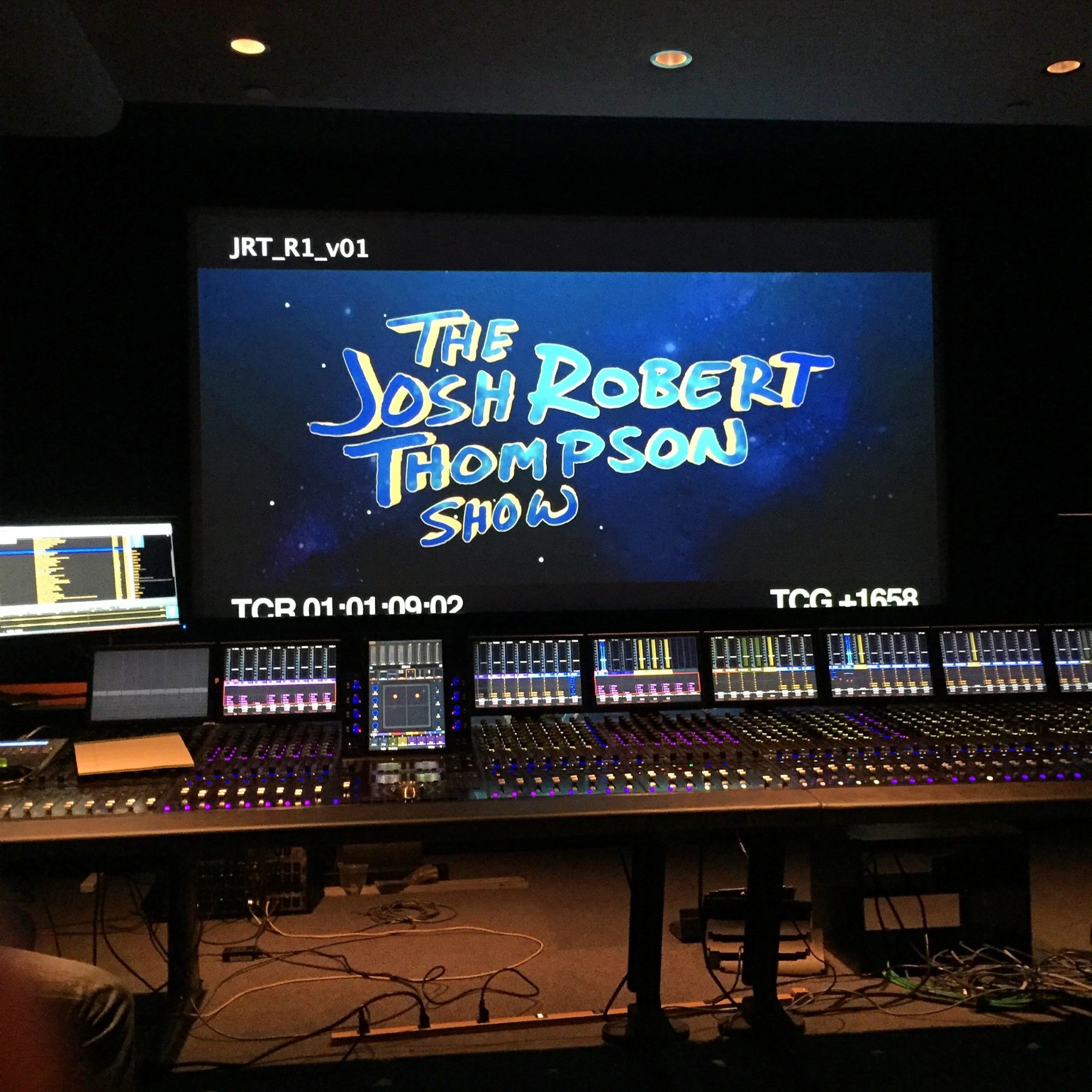
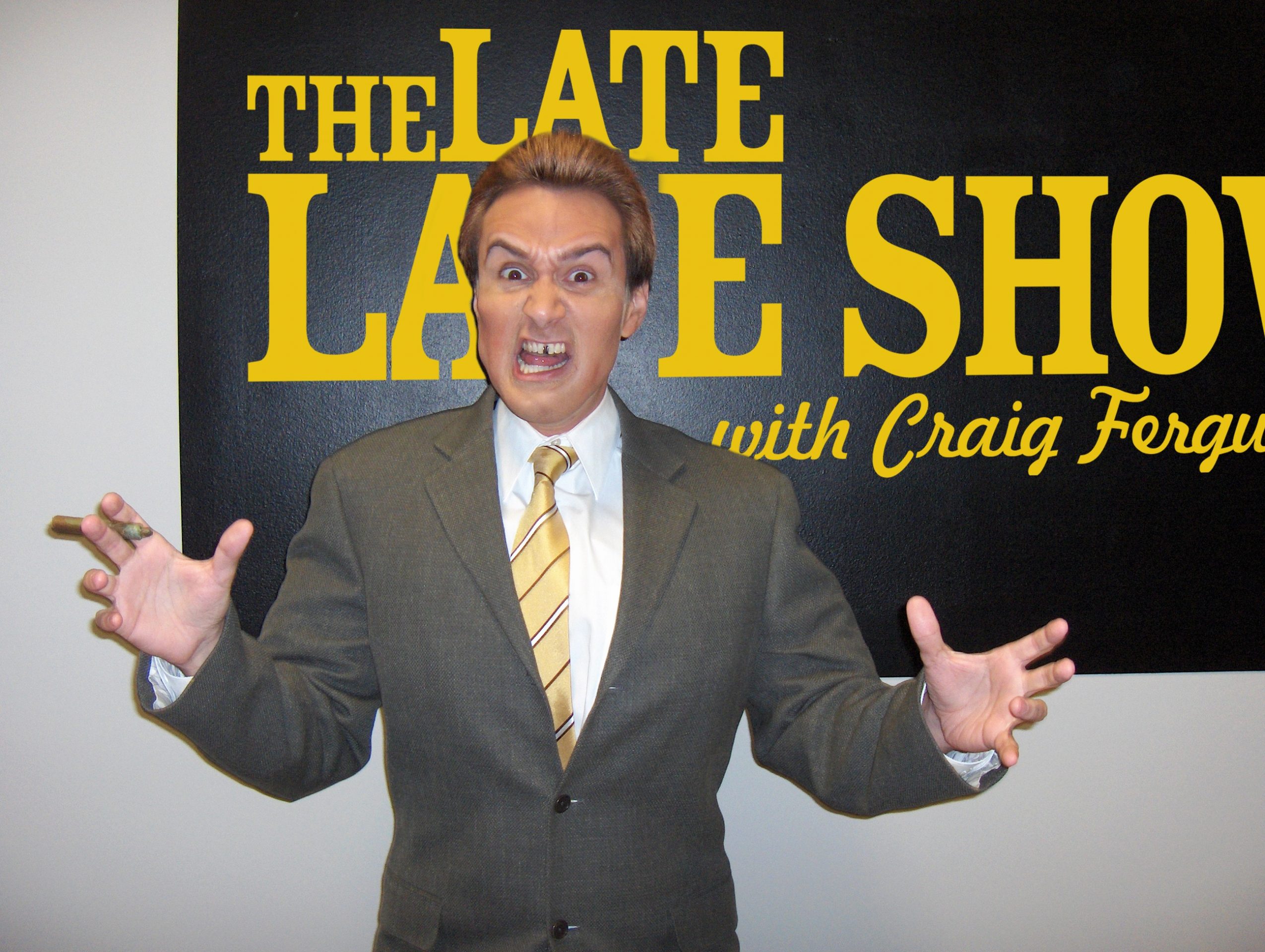
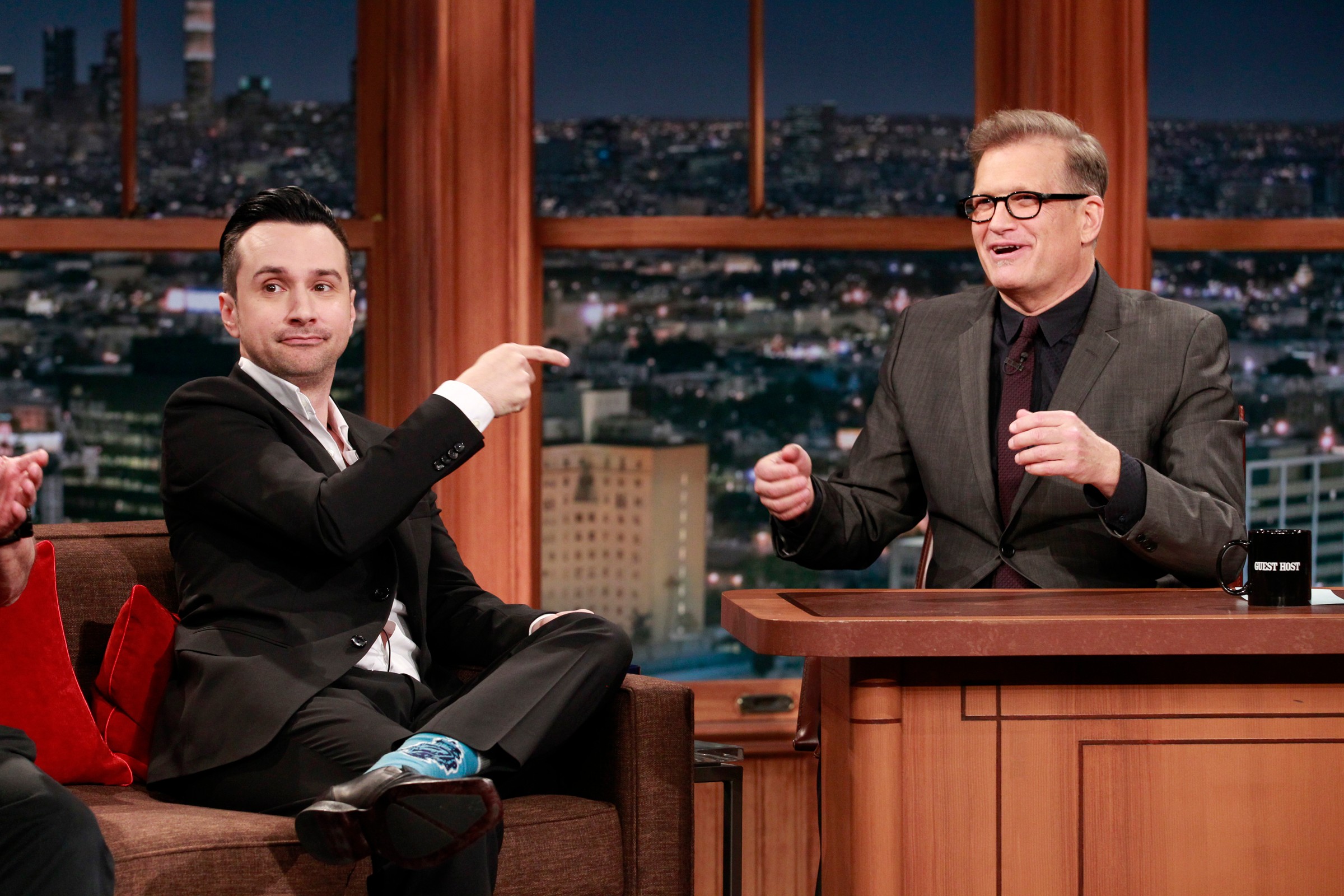
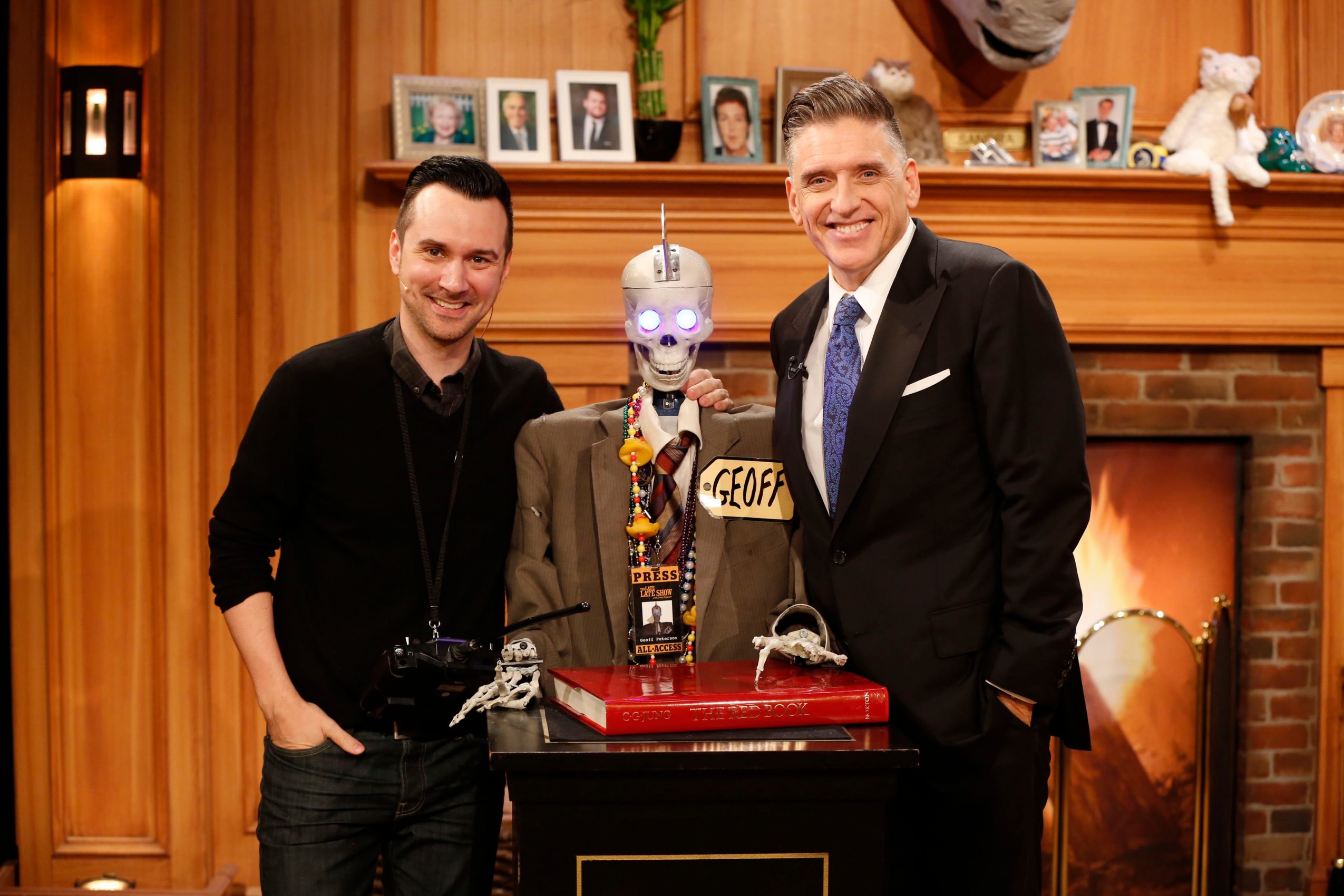
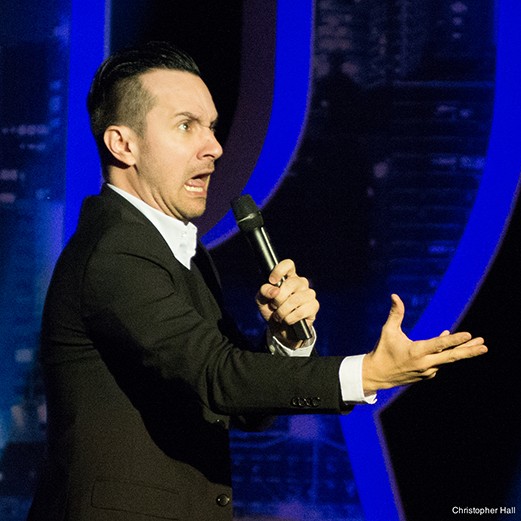
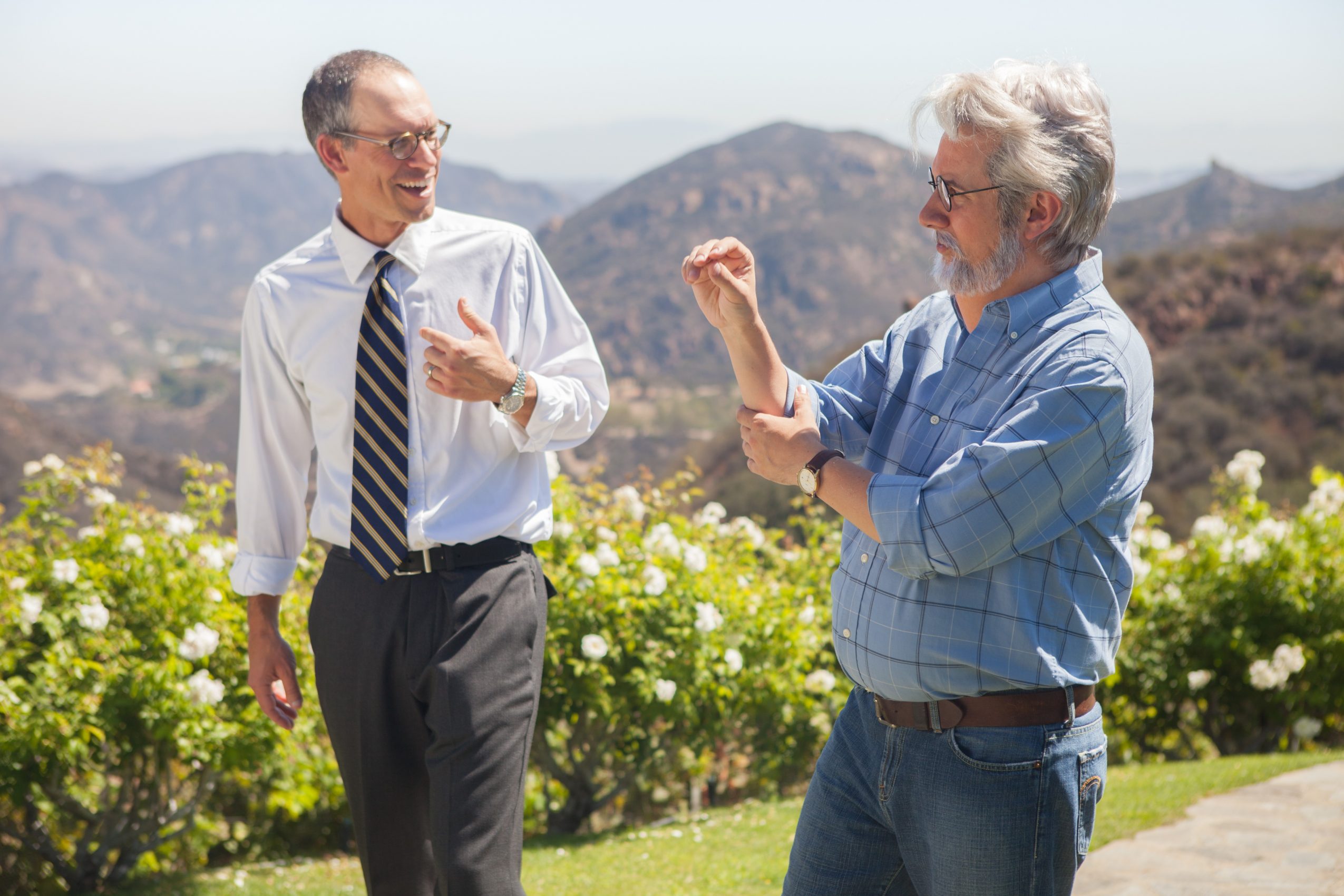
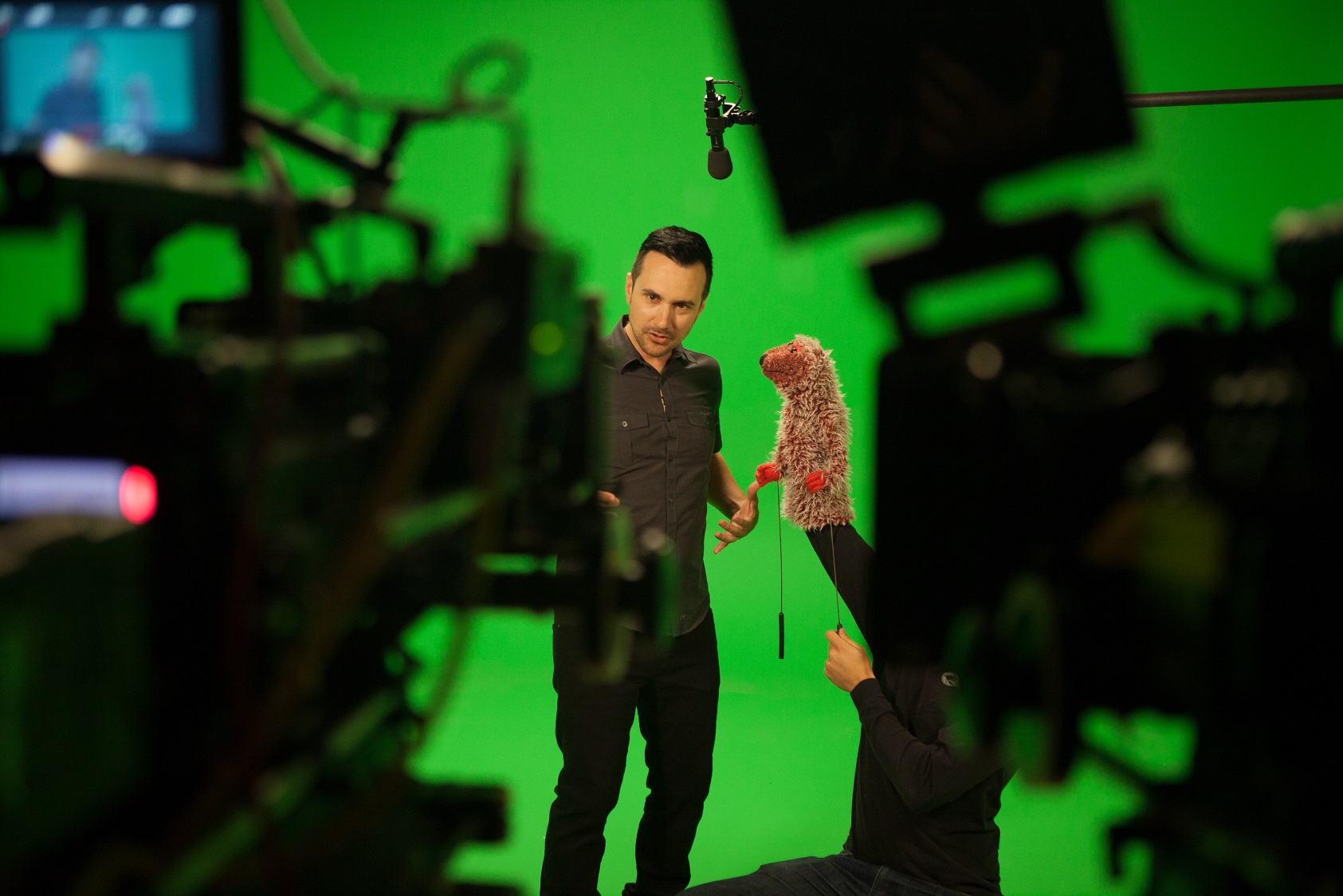
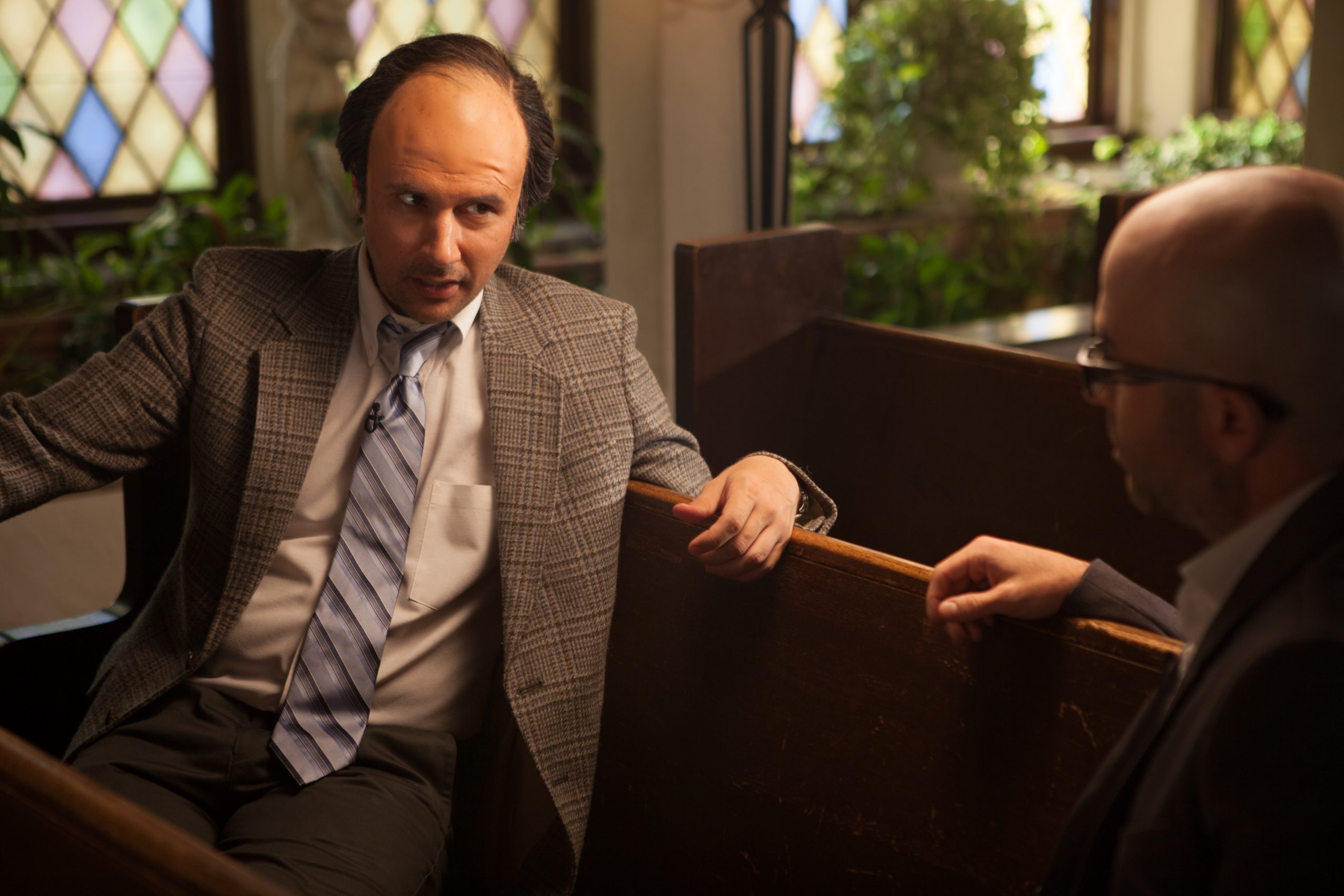
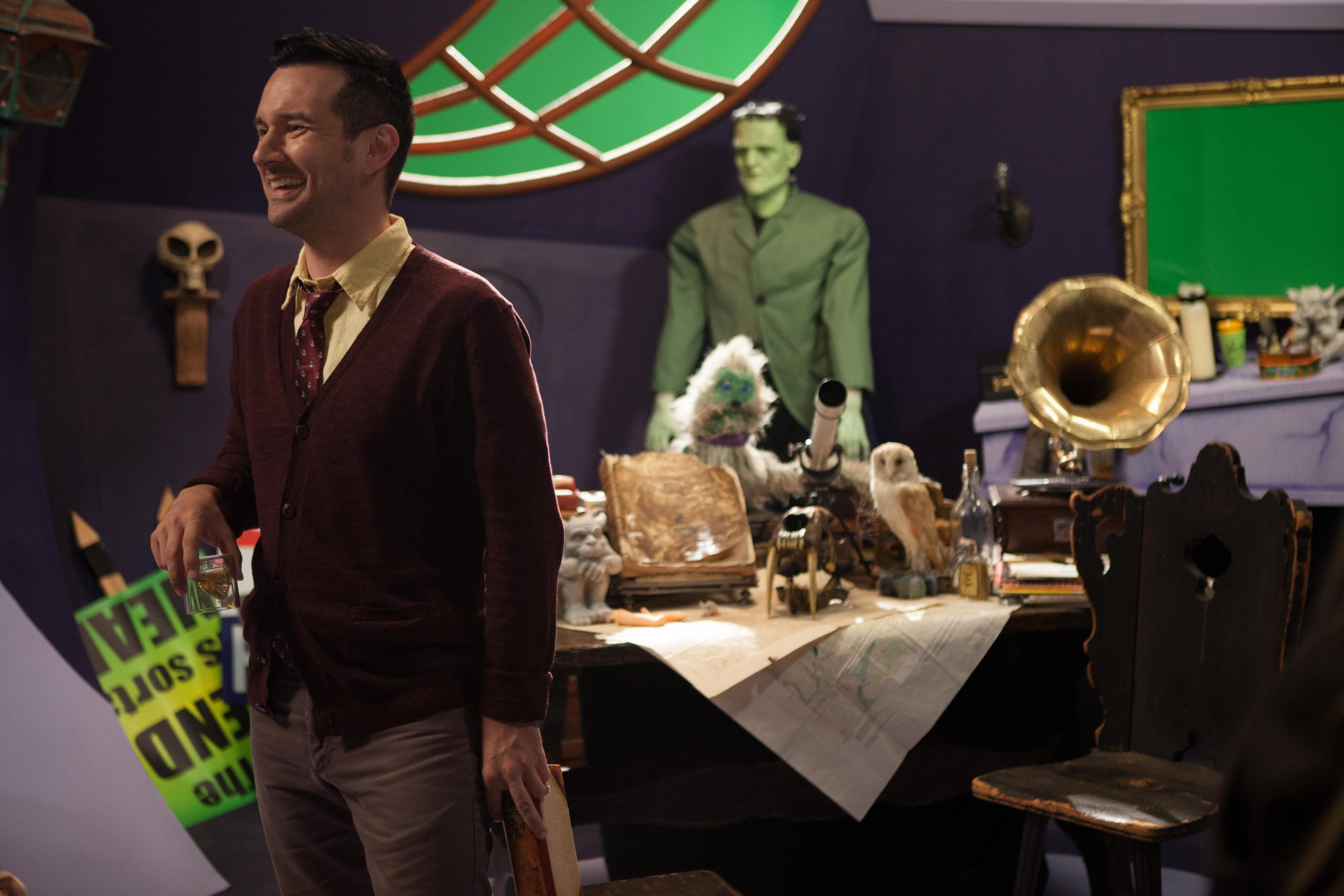
Image Credits:
Nalani Williams CBS Television Christopher Hall














